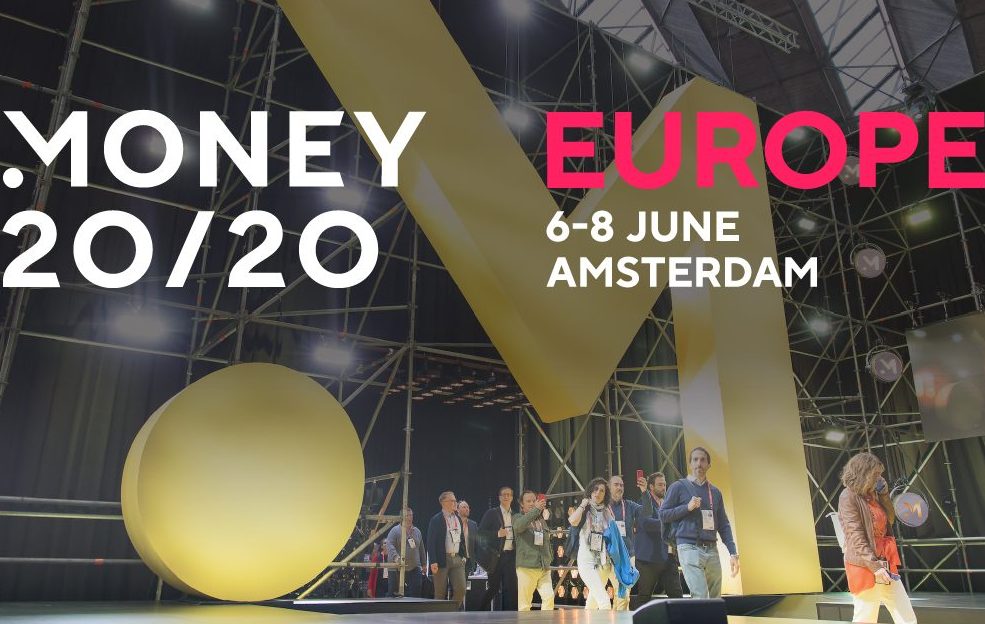Money2020 is just around the corner! Before we enter the 2023 fintech arena at the Amsterdam RAI venue from 6 – 8 June, let’s look at the 5 takeaways of 2022 and take a sneek peak at the 2023 edition.
By Jan Jaap Omvlee, Banking & Finance Magazine
- Digital identity – The talk of the town
Almost everyone has one. A digital identity is typically defined as a one-to-one relationship between a human and their digital presence. It encapsulates a person’s online activity, biometric behavioural data, and more. Above all, it’s about trust. Establishing confidence. And lot of regulation. eKYC or ID Verification providers were among the largest segments of exhibitors at Money20/20 Europe.
From a CX perspective, it is all about ensuring stronger fraud prevention and smoother onboarding for financial services and payments. Seamless customer onboarding is key and the sweet spot where customers will be found – or lost forever. While automating the most time-consuming steps of the onboarding proces, today’s market players are challenged to provide a smooth and frictionless UX and a safe compliance process at the same time.
In the 2023 edition, meet Ekata by Mastercard – check out their Ekata Identity Engine –at stand A30. Hyarchis will be attending at booth E72 and will launch their KYC and AML market report with predictions for 2030.
- Embedded finance: When payments become an experience
Payments were all over the exhibition floor at Money20/20 Europe last year. But what happens when payments become an experience?
Embedded finance is revolutionizing fintech and changing the banking and financial services landscape. Why? Because consumers are given easier and more convenient access to financial services, while companies have more opportunities for growth and a way to develop new revenue streams. Last year, executives from Adyen, eBay, and Squire discussed how platforms and marketplaces would lead this revolution. Bigtechs, retailers, and other merchants have a great chance to stop seeing payments as a cost center and start using them as a source of revenue in order to better serve their customers. To be continued in the 2023 edition at the Amsterdam RAI venue!
In 2022, Scarlett Sieber, Chief Strategy & Growth Officer, Money20/20, wrote a book of how our day-to-day lives will look like in 2030, powered by embedded finance. The book shows how bigtechs are supercharging their customers’ experience to the offerings of smaller, niche players who stand poised to dominate their own corners of the market as their answer unmet customers’ needs.
- ESG – In search of standards
At the Money20/20 2023 edition there was much discussion around the way fintechs could be used to promote social inclusion and solve problems related to access to financial services. Think of services for the unbanked, cheaper and simpler cross-border payments for diaspora communities, and solutions to enable SMEs to transact and get paid quicker. But we’re obviously not there yet.
In a session titled, “What would a standardized ESG framework in finance look like?”, Anna Krotova, Director of Sustainability (www.mambu.com), articulated clearly the challenge of just now nebulous ESG’s all-encompassing wrapper can be for companies —
“I feel we’re introducing a very wide menu of ESG topics, right? You’re talking about climate change, biodiversity, human rights… there’s a lot of issues that are wrapped up under the ESG criteria. But we are not introducing sufficient guidance to help companies actually navigate all of these issues, and what’s material to them. So what are their most significant impacts? And what do they need to focus on? Because that creates a situation where ESG becomes about everything and nothing and that creates a lot of distrust and confusion in the market.” (Courtesy: Money20/20 blogs).
With standards lacking, the debate will undoubtedly continue in the 2023 Europe edition.
- Crypto has become mainstream
Spring always follows winter. While some pessimists labeled the start of 2022 as “crypto winter”, a May 2022 PwC report stated that 80% of central banks are considering launching a central bank digital currency (CBDC) or have already done so. ‘Overall, retail CBDC projects (digital currencies designed for public use) had reached greater maturity levels than wholesale projects (digital currencies used by financial institutions that have accounts with central banks), but 2021 has seen progress on a number of successful wholesale pilots’.
Fast forward to today. Spring 2023 shows that cryptocurrencies are no longer niche and that the future of money is digital. Which nation will introduce the first CBDC on a large scale? How will the metaverse and web3.0 alter how we live? Who is leading the cryptocurrency field? This year’s Money20/20 edition will answer the issue of “why every central bank will have its own digital currency in a year’s time”.
CBDCs have the power to significantly reduce financial fraud, increase financial inclusion, and revolutionise the money supply. But which design will be effective? How will the problems of privacy, competitiveness, and interoperability be resolved? If CBDCs can ultimately enable more efficiency in payments, this will benefit everyone.
- The power of partnerships
Technology is moving at such a rapid pace that building in-house makes little sense. Forging new partnerships are therefore vital to the future of the FS industry. See how new partnerships are changing the game and keep pushing innovation.
American Express partnered with fintech startup Nova Credit and debuted a “credit passport” that lets immigrants from five countries share their international credit histories within Amex’s online application to build credit in the U.S. Vantiv, ‘a leading, integrated payment processor focused on helping merchant and financial institution clients be more successful’, partnered with AEVI, payments experts. Google, Visa & Mastercard partnered to get rid of passwords. Wells Fargo & Google partnered to launch AI assistant ‘Fargo’.
Last year Peter-Jan Van De Venn, Strategy Director at Mobiquity, a digital consultancy that designs and delivers innovative digital products and services for the world’s leading brands, discussed at Money20/20 Europe why partnerships are so important in today’s ecosystem, the strength of Mobiquity’s human-centric approach, and the next stages of evolution in the ecosystem. Watch the video: here
With more traditional players seeking to enter the fintech space, we are about to see new partnership models coming up. Stay tuned!
Jan Jaap Omvlee is an Amsterdam-based Senior Writer at Banking & Finance Magazine, who will be attending Money2020 Europe, janjaap@bankingfinance.nl

